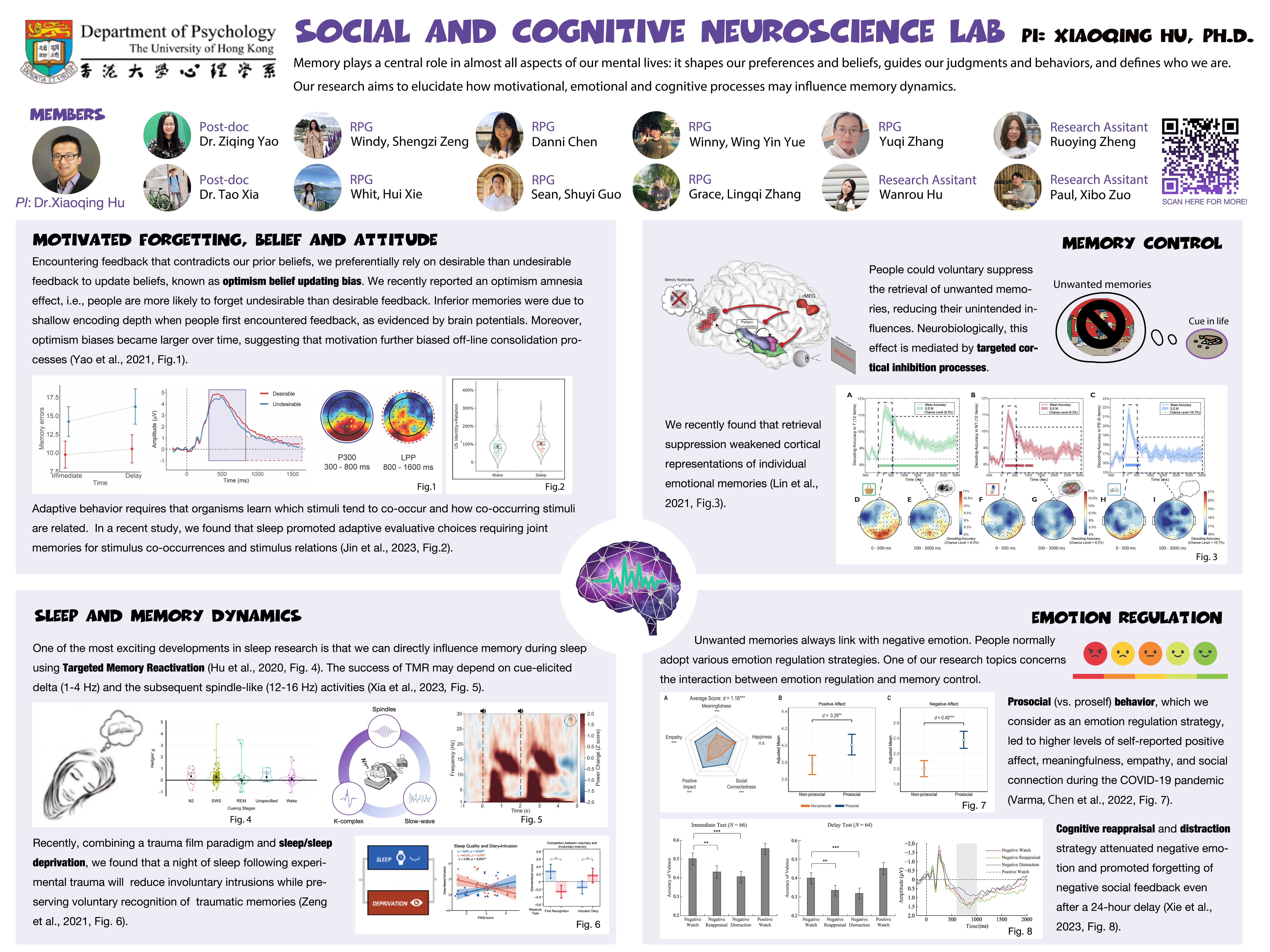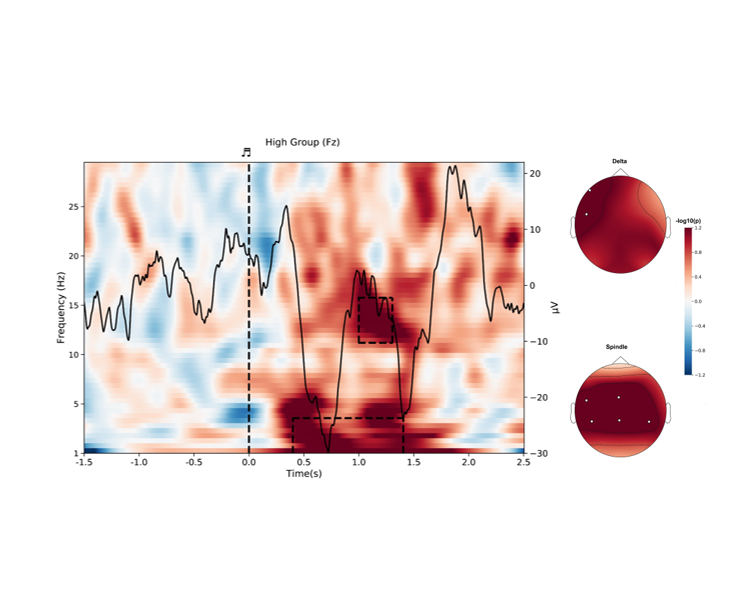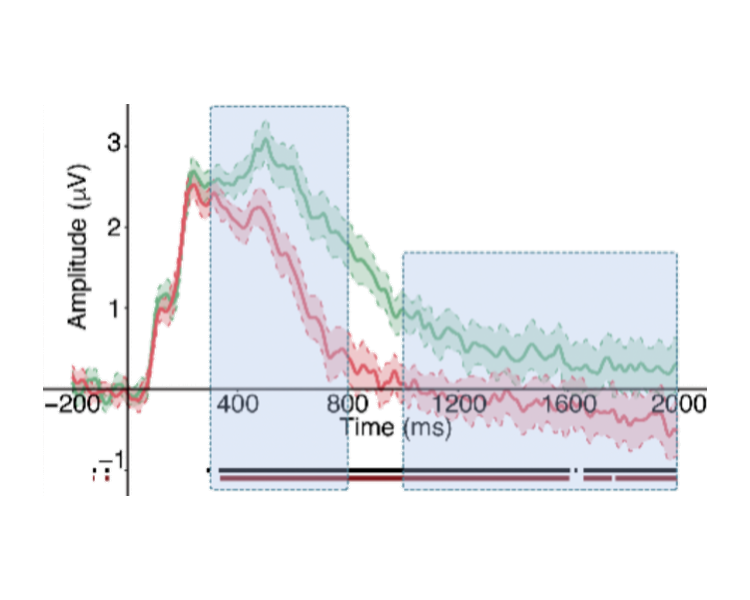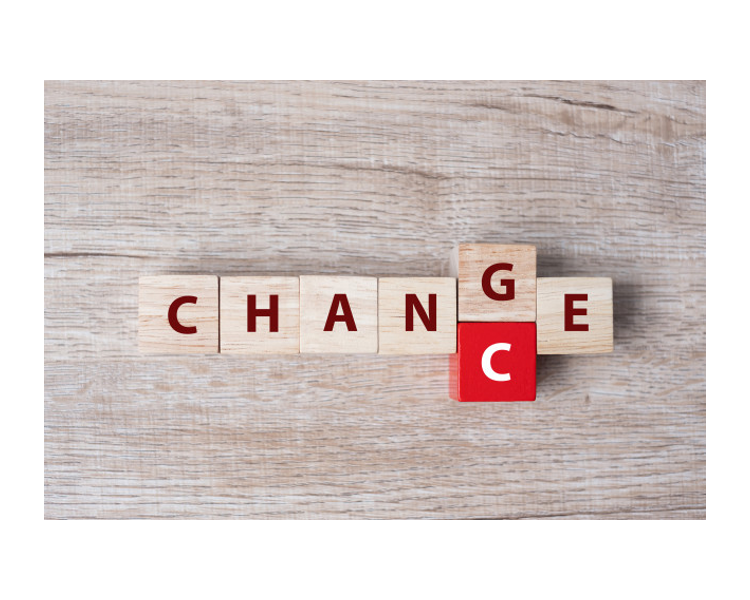
Research

Our research aims at understanding how we remember and forget about our past experiences, and the neurocognitive processes supporting these memory dynamics. One fundamental assumption of this research is that memory plays a central role in shaping our preferences and beliefs, and in guiding our judgments and behaviors. Our research aims to elucidate how motivational, emotional and cognitive processes may influence memory processes. Of particular interests, we consider sleep as an indispensable component to complete our understanding of memory.
We mostly employ EEG, behavioral and online studies in our research. If you are interested in learning more about us and about our research, please find our lab members and publications here.
Some exemplar questions we are currently investigating are:

Figure by T. Xia
Leverage sleep to manipulate memories
Featured Publications:
Xia, T., Chen, D., Zeng, S., Yao, Z., Liu, J., Qin, S., Paller, K.A., Torres-Platas, S.G., Antony, J.W., & Hu, X.* (2024).
Aversive memories can be weakened during human sleep via the reactivation of positive interfering memories.
Proceedings of the National Academy of Sciences.121 (31) e2400678121. https://doi.org/10.1073/pnas.2400678121
Liu, J., Xia, T., Chen, D., Yao, Z., Zhu, M., Antony, J. W., Lee, T.M.*, & Hu, X.* (2023)
Item-specific neural representations during human sleep support long-term memory. PLoS Biology 21(11):
e3002399. https://doi.org/10.1371/journal.pbio.3002399.
Hu X.*, Cheng, L., Chiu, M., & Paller, K.A. (2020). Promoting memory consolidation during sleep:
A meta-analysis of targeted memory reactivation. Psychological Bulletin, 146(3), 218-244.
https://doi.org/10.1037/bul0000223.

Figure by X. Lin
Memory control and motivated forgetting
Featured Publications:
Varma, M. M.#, Zeng, S.#, Singh, L., Holmes, E. A., Huang, J., Chiu, M., & Hu, X.* (2024).
A systematic review and meta-analysis of the effectiveness of experimental techniques in altering
intrusive memories of lab-analogue trauma. Nature Human Behaviour.
https://doi.org/10.1038/s41562-024-01956-y
Lin, X., Chen, D., Liu, J., Yao, Z., Xie, H., Anderson, M.*, & Hu, X.* (2024). Observing
the suppression of individual aversive memories from conscious awareness. Cerebral Cortex.
34(6). https://doi.org/10.1093/cercor/bhae080
Xie, H., Lin, X., Hu, W., & Hu, X.* (2023). Emotion regulation promotes forgetting of negative
social feedback: Behavioral and EEG evidence. [情緒調節促進負性社會反饋的遺忘——來自行為和腦電的證據]
Acta Psychologica Sinica. 心理學報 https://journal.psych.ac.cn/xlxb/CN/ [in Chinese]

How people form new attitudes or change their existing attitudes
Featured Publications:
Yao, Z., Tu, P. Y., Zuo, X., Wei, J., & Hu, X. (2025). Modulating Positive Self-Referential Processing by 40 Hz
tACS in Individuals with Subthreshold Depression: A double-blind, sham-controlled study. Journal of Psychiatric Research.
Chen, D., Yao, Z., Liu, J., Wu, H., & Hu, X.* (2024). Social Conformity Updates the Neural Representation of
Facial Attractiveness. Communications Biology. https://doi.org/10.1038/s42003-024-06791-5.
Jin, R., Xia, T., Gawronski, B., & Hu, X.* (2023). Attitudinal Effects of Stimulus Co-occurrence and Stimulus
Relations: Sleep Supports Propositional Learning Via Memory Consolidation. Social Psychological and Personality
Science, 14(1), 51-59.
Hu, X., Antony, J. W., Creery, J. D., Vargas, I. M., Bodenhausen, G. V., & Paller, K. A. (2015).
Unlearning implicit social biases during sleep. Science, 348, 1013-1015. doi: 10.1126/science.aaa3841.
Contact Us
Social & Cognitive Neuroscience Laboratory
Jockey Club Tower, Centennial Campus,
The University of Hong Kong,
Hong Kong, S.A.R. China
Copyright © 2023
Social & Cognitive Neuroscience Laboratory all rights reserved